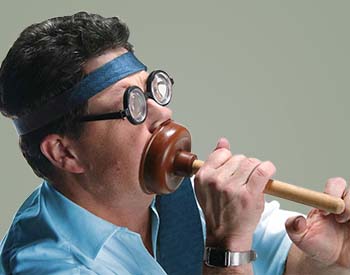
Speech disorder are defined as a condition where there is difficulty in speech formation which results in impaired communication with others.
Since Speech is an important mode of communication; impaired speech may make a person difficult to understand by the listener, creating many problems in life of affected person.
Types of Speech Disorder-
-
Apraxia-
- Also known as oral motor speech disorder
- Here patient faces difficulty in sound production
- Message from brain fails to reach mouth resulting in difficulty in moving tongue and lips though, there is no weakness in those muscles resulting in difficult tongue and lip co-ordination
- Difficulty in co-ordination of muscle movements
- This condition may be a result of stroke or progressive neurological disorder which causes brain damage. Cerebral Palsy is also a leading cause of Speech Apraxia
-
Dysarthria-
- There is weakness or paralysis of the muscles required in speech production
- This can be a result of damaged nerves
- Speech is slow, slurred, inaccurate and nasal
- Conditions like Cerebral Palsy, Parkinson's disease, stroke, accidental injury to head & neck may cause this condition
-
Dysprosody-
- Neurological speech disorder
- Very rare
- May be due to cardio vascular accidents, tumour in brain, trauma to brain etc
-
Cluttering-
- Speech is affected in such a way that listener find it difficult to understand.
- Fluency and flow of speech is affected.
- Rhythm is jerky and speech is cluttered
-
Speech sound disorder-
- Difficulty in producing certain speech sounds s/r/or etc
- It can be articulation disorder, where patient faces difficulty to produce sound for example 'tain' for 'rain'.
- These errors make the listeners hard to understand what the patient is trying to say
- It can also be phonemic disorder, which includes making sound patterns for example, "tup for cup".
- Any accent is not a part of Speech sound disorder
-
Muteness-
- 'Mute' is the term used for the person who cannot speak due to speech disorders
- Mutism can be inborn or acquired in later life.
- Trauma to speech area of brain can cause mutism
- Deafness can cause complete mutism (deaf-mute)
- Selective mutism or elective mutism is an anxiety disorder seen often in young kids who prefer not to speak in some situations even when are able to communicate. Such kids are shy, anxious, clingy and avoids eye contact.
-
Stuttering-
- Common in young children
- Also known as Stammering
- It has strong genetic inheritance
- It affects fluency of speech
- It may start in early childhood and may persist for lifetime
- It is more common in males than females
- Though 75% of pre schooling kids who stutters, stop stammering as they grow up
- There is disruption in the production of speech sounds
- It can affect life of affected person
- Stuttering affects fluency of speech; there is difficulty to start (umm.....great), there is stretching of a word (ggggg........great), and there is repetition of sound, words (I a....am........am...........wait......waiting) etc.
- Stuttering is a complex phenomenon with no particular single cause.
- Stuttering can be development, neurogenic or psychological. Development stuttering develops early in childhood and may go away on its own. Neurogenic Stuttering is due to misconnection between brain signals and speech muscles. While psychogenic stuttering is due to stress, embarrassment, etc.
- Stuttering can be in response to only certain situations for example, a person may stammer only when he is nervous, emotional, speaking in group, speaking to certain person etc.
- This may result in utter frustration leading to isolated behaviour, depression etc.
- Hence listeners should try to be patient with people who stutters. Trying to suggest them words, interrupting them, fill in the words, or giving them advice to relax increases their tension. As a result they try to speak fast, resulting in aggravating the stuttering.
-
Voice Disorders-
- This may be result of physical impairment of vocal cords and larynx
- It could result in hoarseness in voice resulting in breaking of voice and change of sound pitch. Voice seems too loud or too low. There could be nasal tone in voice.















